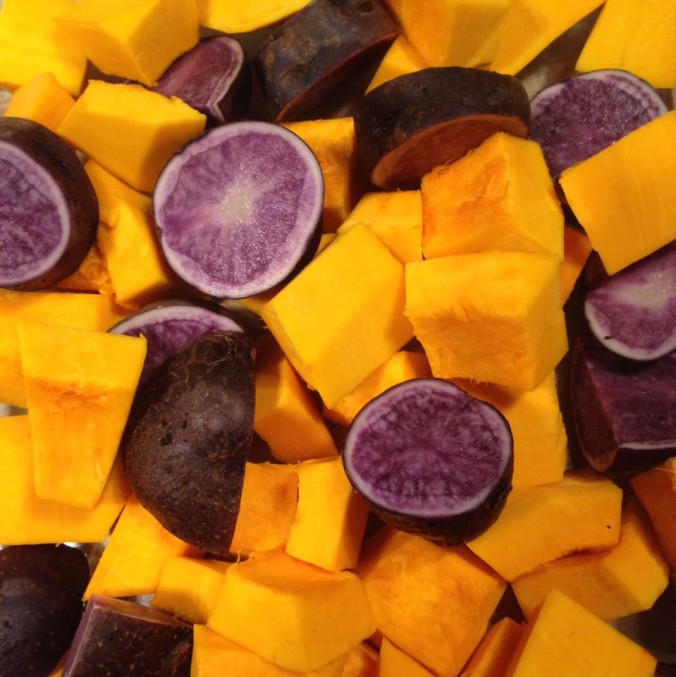I’m ever fascinated by the qualifiers we tend to use around food.
Think about it: how often do you see the word “sinful” used to describe a dessert? How about “decadent” or “guilty pleasure”?
Does it sound enticing?
These expressions are so ingrained into today’s vernacular that we may not even be aware of our using them. Skewed descriptions or not, they feel somewhat stylish and subversive. Sexy, even.
After all, doesn’it feel exciting to break the rules?
The truth is, food has no moral value.
Take a step back and think about these words we just listed: sinful, guilty, decadent. There are so many others we could add.
Even without a hint of religious subtext, we can’t pretend these expressions are truly rooted in anything positive. And they certainly have little to do with a dish’s palatability. We mistake them for accurate descriptions of deliciousness, forgetting that they usually stem from a pretty negative context.
Using transgression-related adjectives to speak about sustenance imprisons us in a logic of good vs. bad, which has little to do with the food in question, but very much with how we feel about ourselves.
If our self-worth is influenced by what goes into our mouth, then we err.
Furthermore, what troubles me tremendously is that, in most cases, the foods we’ll associate with the “bad” adjectives are foods we actually do enjoy. Foods which bring us pleasure. So in the end, we’re associating our pleasure and enjoyment with a vocabulary of shame.
Can you see how damaging this gets in the long run?
Now, I ask you to think about this: how many products have you seen marketed as “guilt-free” lately?
The fact that marketers are so ruthlessly tapping into our collective food guilt is certainly cause for upset, even though it doesn’t surprise me in the least. Media keeps trying to convince us that we are broken, that we are lacking, in order to sell us the products that will “fix” us.
Except we’re not actually broken, and we need to stop believing that we are.
I would argue that the same goes for the relatively newly popular adjective “clean” used in regards to food, so prevalent in fitness circles.
While I certainly appreciate the messages around the importance of focusing on whole foods, I don’t think using a label such as “clean” is the way to go (except, obviously, in a sentence like “I’ve just scrubbed the dirt from those beets and now they are clean”).
What if you don’t “eat clean”? Does it mean that you’re “eating dirty”?
And how does that reflect on your character? On your inherent worthiness?
By stripping food of its moral value, which is something that we, as a society, have completely constructed (because, repeat after me: food has no inherent moral value!), we are able to reclaim our power and make mindful choices.
When our choices are motivated, if only just a little bit, by the need to quell feelings of inferiority—or even (and we won’t admit it willingly) by the need to feel superior, we are on the wrong track.
I’ve been giving more focus to my moderation practice over the last year. I’d sort of dabbled with moderation in the past, with varying degrees of success, but I always ended up going back to more excessive, all-or-nothing ways.
See, I was mistakenly treating moderation as an all-or-nothing approach.
I figured that, if I focused enough on it, one day I’d just get it, I’d achieve moderation and then I’d be good.
Ha! No.
This is where we see that slippery slope appearing again: if the way we approach moderation ties it into a good vs. bad rationale—i.e. when I’m being moderate, I am being good; when I am not, I am being bad—then we remain imprisoned by that logic and not, in fact, practicing moderation.
It took me a long time to grasp the notion of practice. A practice isn’t something where you can just level up and then stop working. You have to keep at it every single day. Sometimes, things go your way, sometimes they don’t, but you keep at it.
A practice is not a finite process and, to me, a true moderation practice cannot be sustained while still stuck in the moral food trap. At some point, it clicked: food is nourishment, not a reward. Food isn’t a punishment either.
It is a means to sustain life, to share meaningful connections with others, and to experience the world. Food doesn’t hold the power to make me good or bad.
Food is just food.
It isn’t until that piece of the puzzle clicked into place that I was able to really go forward with a true moderation practice.
What are your thoughts about the words we use relating to food? Do you ever let moral labels affect your choices, or the way you feel about them? Does your relationship with food resemble a power struggle?


